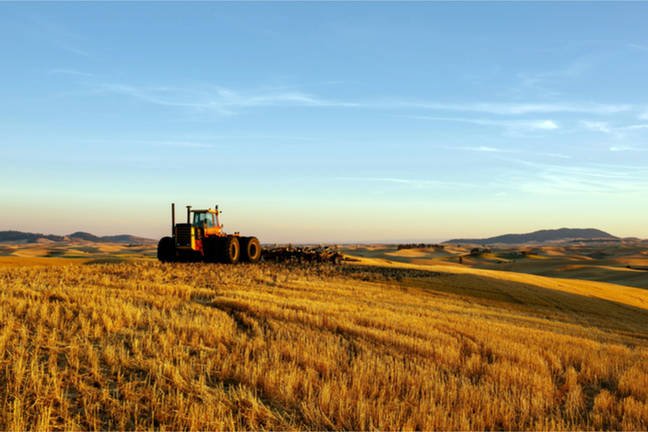Two lawsuits have been filed in the past two weeks against farm equipment maker Deere & Company for allegedly violating antitrust laws by unlawfully monopolizing the tractor repair market.
The first [PDF] was filed on January 12 in Illinois on behalf of Forest River Farms, a farming business based in North Dakota; the second, was filed in Alabama last week on behalf of farmer Trinity Dale Wells [PDF].
The lawsuits each claim what right-to-repair advocates have been saying for years: that Deere & Co., maker of John Deere brand farming equipment, denies customers the ability to repair and maintain their own agricultural machinery.
“Farmers have traditionally had the ability to repair and maintain their own tractors as needed, or else have had the option to bring their tractors to an independent mechanic,” the Forest River Farms complaint says.
“However, in newer generations of its agricultural equipment, Deere has deliberately monopolized the market for repair and maintenance services of its agricultural equipment with ECUs [engine control units] by making crucial software and repair tools inaccessible to farmers and independent repair shops.”
Deere has deliberately monopolized the market for repair and maintenance services of its agricultural equipment … by making crucial software and repair tools inaccessible to farmers and independent repair shops
The lawsuit contends Deere & Co. prevents farmers from repairing their equipment by requiring its network of dealerships to abide by agreements to not give farmers or repair shops access to proprietary company software and repair tools.
The complaint filed in Alabama presents similar allegations, borrowing some of the initial language of the Illinois case. But it focuses on a different farmer’s circumstances. It argues that Deere & Co.’s alleged monopolization of the repair market has allowed the manufacturer to charge premium prices beyond what would be possible if there were real competition.
And it accuses a trade group representing Deere & Co. of failing to follow through on a 2018 commitment that Deere & Co. would make its software and tools available to customers by January, 2021.
“The motive behind restricting access to [the proprietary software] is simple: Deere and its Dealerships did not want their revenue stream from service and repair—a far more lucrative business than original equipment sales—to end when the equipment is purchased, as it often did in the past when owners could perform their own repairs or rely on individual repair shops,” the Alabama complaint says.
Both complaints contend Deere’s repair business is three to six times more profitable than its equipment sales business. The Illinois complaint focuses on the company’s efforts in recent years to consolidate and control the repair market for its products; the Alabama lawsuit makes similar allegations that stem from the personal experience of plaintiff Trinity (Trent) Dale Wells.
In December, 2021, according to the Alabama complaint, a field hand operating Wells’ John Deere 5105 tractor saw the stop engine light turn on and then stopped doing anything for fear of damaging the vehicle. Wells, it is claimed, called the only service and repair option available to him, authorized John Deere supplier TriGreen.
“A TriGreen representative would only dispatch a service technician to his farm if [Wells] provided his debit card information in advance of the service,” the complaint explains. “Having no choice, he did so. However, Trent was provided with neither a repair estimate nor any assurance that he would be able to approve charges to his card before they were made.
“When the technician arrived, he hooked up an ECU diagnostic machine, pulled the cap off of an emission sensor, dried it out, and put it back on. He spoke with Wells for approximately 10 minutes about the weather and crops and then left.
“About an hour later, Wells’ card was charged $615 for approximately 2 1/2 minutes of work,” the complaint continues. “Due to John Deere and co-conspirator TriGreen’s practices, Wells has no alternative other than to submit himself to this kind of fleecing.”
Wells’ card was charged $615 for approximately 2 1/2 minutes of work
Deere & Co. did not respond to a request for comment on the lawsuits.
Coincidentally, Deere & Co. was recently awarded two Worst in Show Awards, bestowed by right-to-repair activists as a commentary on repairability of tech products debuting at CES.
Eric J. Artrip, a partner at Huntsville, Alabama-based law firm Mastando & Artrip, told The Register in a phone interview, “Ultimately, our goal is to see some real and systemic change in the farming industry.”
Artrip explained that farming profit margins are extremely small and depend upon factors outside of farmers’ control like weather and commodity price fluctuations. The monopolistic behavior of Deere & Co., he said, has become a serious concern for farmers. ®
Source link



